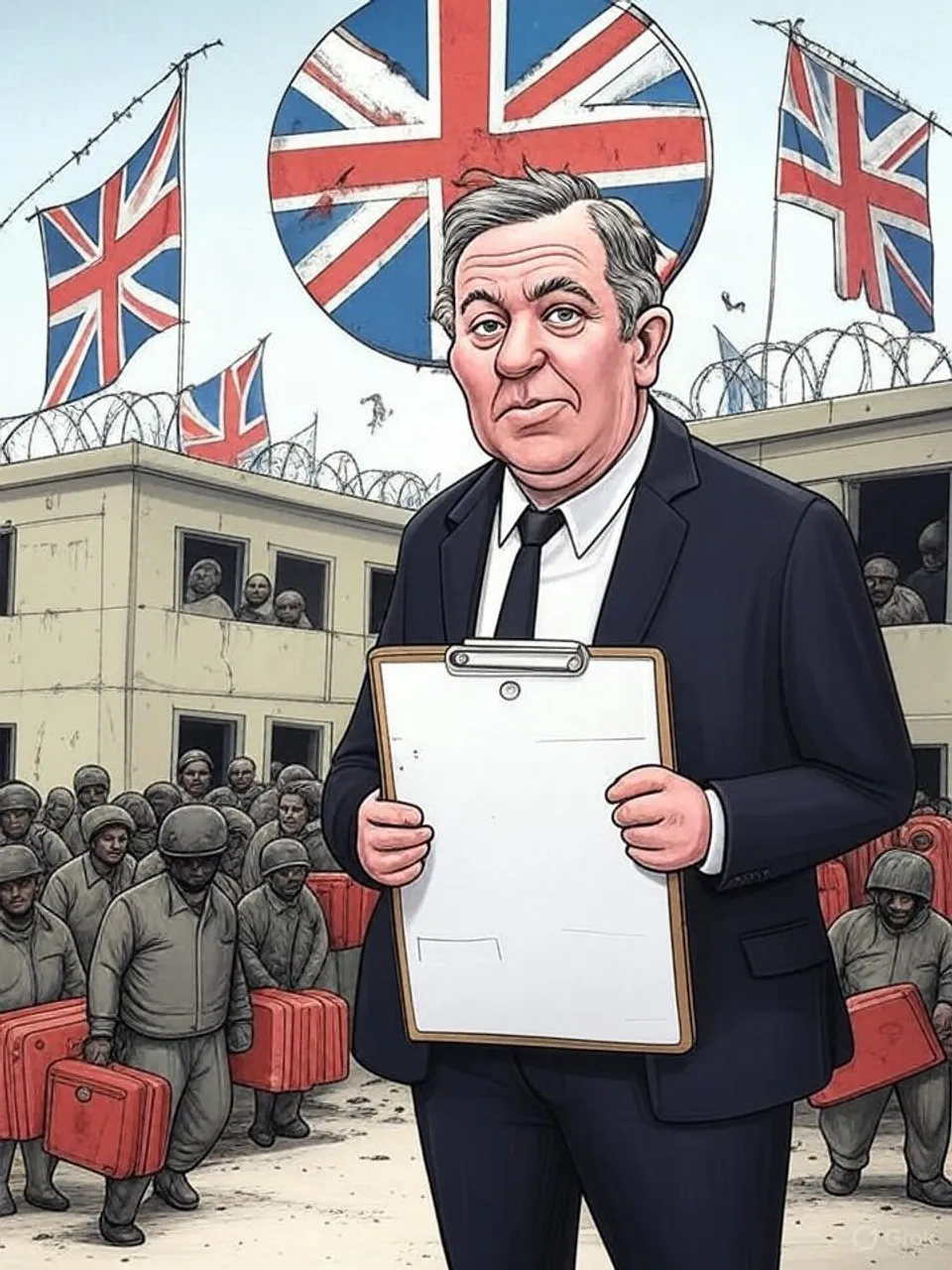Barracks for the Borderless: UK's Asylum Fix Reveals Rot at the Core

From hotels to military outposts, the migration muddle persists
The relocation of asylum seekers to disused UK military sites exposes a migration system in freefall, with costs tripling and backlogs unyielding despite cross-party pledges for control.
The UK government has begun relocating around 900 male asylum seekers to two disused military sites—Cameron Barracks in Inverness and Crowborough Training Camp in East Sussex—as a stopgap to phase out hotels. Officials describe this as a “proof of concept” to cut costs and ease community pressures, with plans to expand to up to 10,000 people across more bases. Yet this shift arrives amid a parliamentary report branding the hotel system “failed, chaotic and expensive,” highlighting not innovation but exhaustion in a migration policy that has spiraled out of control.
This development matters because it exposes the fragility of the UK’s asylum infrastructure, where ad-hoc measures like repurposing barracks signal institutional overload rather than strategic reform. For ordinary citizens, it means diverted military resources, strained local services, and a visible marker of how unchecked migration inflows have overwhelmed planning. In a nation once known for orderly administration, such improvisations erode confidence in government’s ability to handle border pressures without resorting to wartime relics.
The data paints a stark picture. As of June 2024, 32,000 asylum seekers remain in hotels, a reduction from the 2023 peak of over 56,000 but an increase of 2,500 compared to the previous year. Accommodation contract costs for 2019-2029 have ballooned from £4.5 billion to £15.3 billion, driven by a “dramatic increase” in demand that the Commons Home Affairs Committee attributes to processing backlogs. Backlogs now exceed 100,000 cases, with decisions taking years—far from the swift resolutions promised in successive manifestos. These sites, previously used for 2021 Afghan evacuees, were cleared earlier this year, only to be repurposed now, underscoring inefficient reuse rather than permanent solutions.
This fits a recurring pattern of reactive fixes in UK migration policy, transcending party lines. Under the Conservatives, hotel use exploded post-2019 amid Channel crossings surging from 1,800 in 2019 to 45,000 in 2022, with Rwanda plans yielding zero deportations despite £700 million spent. Labour’s new administration, just months in, inherits the mess but offers no clear timeline for ending hotel reliance, instead floating “temporary facilities” and prefabricated additions. Historical parallels abound: the 1990s saw similar strains with Balkan refugees, but then-institutions processed claims faster, with backlogs under 20,000. Today, systemic inertia—underfunded Home Office staffing at 20% below targets and legal challenges piling up—ensures problems compound. Both major parties have pledged control, yet arrivals hit record highs in 2022 under Tory rule and continue unabated.
Stripping away the rhetoric of “fury” from Home Secretary Yvette Cooper or Starmer’s finger-pointing at predecessors, the evidence suggests deeper rot: a bureaucracy captured by legal and logistical knots, prioritizing containment over resolution. Who benefits? Private contractors profiting from £15 billion deals, while taxpayers foot the bill and communities absorb the strain—Inverness’s city-center barracks, for instance, buck the goal of isolating sites from populations. Competent governance would mean investing in dedicated processing centers and international agreements to stem flows, not shuffling people between hotels and huts.
In the broader arc of UK decline, this episode illustrates how institutional decay turns solvable challenges into chronic crises. Migration policy’s failures mirror stagnating public services elsewhere: NHS waiting lists at 7.6 million, prisons at 88,000 capacity with no space left. Regardless of who governs, the same gaps recur—under-resourced agencies, unfulfilled pledges, and a democratic deficit where accountability dissolves into blame. For citizens, it means a country less able to enforce its borders or sustain its welfare compact, accelerating the erosion of trust and cohesion that defines this era’s quiet unraveling.
Commentary based on Hundreds of asylum seekers to be moved to two UK military sites by Kevin Rawlinson on The Guardian.